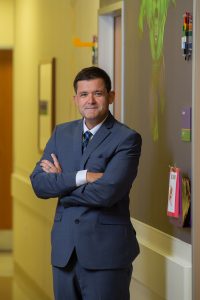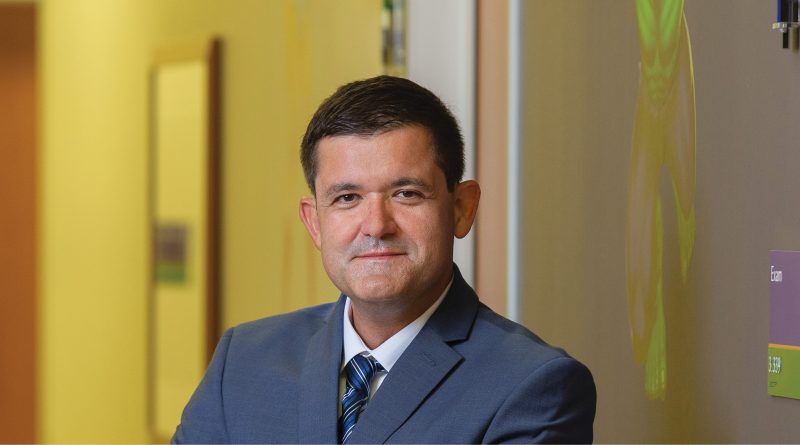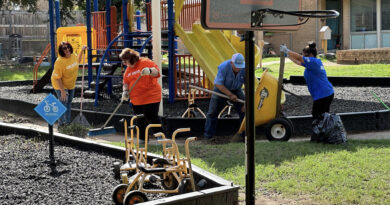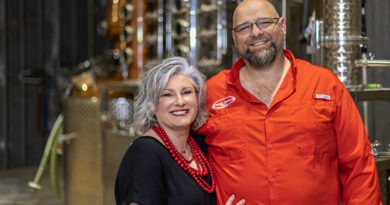Studying COVID-19 in newborns a focus for McLane physician
By Amy Rognlie | Photography by Rusty Schramm, BSWH
Premature babies born at McLane Children’s Medical Center or Baylor Scott & White Hospital during the early days of the pandemic were of particular concern to Dr. George Dubrocq, the lead pediatric infectious disease physician at the children’s hospital.
 “In the early stages of the COVID pandemic, I followed, via telemedicine, every positively-diagnosed child and family until they were well. I also frequently interacted with our pediatricians and providers in developing algorithms in the testing of COVID to prevent the chance of a false negative, as that would have the potential to cause a breakout in the community,” he explains.
“In the early stages of the COVID pandemic, I followed, via telemedicine, every positively-diagnosed child and family until they were well. I also frequently interacted with our pediatricians and providers in developing algorithms in the testing of COVID to prevent the chance of a false negative, as that would have the potential to cause a breakout in the community,” he explains.
“All babies born under 32 weeks gestation are extremely vulnerable, as passive immunity from their mothers is not yet completed. At McLane’s, we have a robust and busy neonatal intensive care unit of 60 beds. To prevent the transmission from a potentially COVID-positive baby to hospital staff and other premature babies in the unit, the neonatal ICU team and I developed an algorithm for testing babies born to COVID positive mothers.”
Though transmission rates of the virus are very low from child to child, in the rare case of a child with COVID, Dr. Dubrocq is the go-to guy. “For every severe COVID case in a child, I help our medical providers determine which COVID medication to administer, given that all the medications are in the experimental stage and the literature is scarce.”
Dr. Dubrocq’s previous work in the vaccine division of the U.S. Food and Drug Administration, as well as his Infectious Disease training at Children’s National Medical Center in Washington, D.C., provide a strong foundation for his current work in infectious diseases and immunology here in Central Texas.
“My journey as an infectious disease specialist began during my third year of medical school after shadowing my mentor, Dr. Conrad, in New York City. An aspect that attracted me to ID is that you have to be knowledgeable not only about vaccines, antibiotics, and infectious causes, but also know about other areas as you have to take a whole patient approach to find the cause of disease.”
That “whole-patient” approach and his broad knowledge base are necessary for Dr. Dubrocq’s other passions, including his work performing penicillin allergy skin testing to verify the allergy and his tireless efforts to streamline the treatment process for immunodeficient patients.
As the Antibiotic Stewardship Director at McLane’s, Dr. Dubrocq is ardent about educating other medical providers about best practices in prescribing antibiotics.
Though Dr. Dubrocq has lived in Central Texas for only three years, he is having a wide-reaching impact on our community. “I try to help out the community (medical and non-medical) by frequently talking to various groups about current breakouts, vaccines, COVID-19, and misconceptions in medicine,” he says.
Dr. Dubrocq and his wife, Alana, a therapist for children with autism, were attracted to the Temple area by the quality of life for their family, which includes their children, Brianna, 11, and Andrew, 8. “In Central Texas, the people are friendly, cultural events are frequent, there is an excellent school system, opportunity for advancement, a great medical system, and plenty of outdoor activities. We chose Temple over other areas and it’s been a great decision.”




